Latest Sheet Music
Paolo Tosti
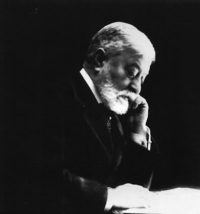
Sir Paolo Tosti (April 9, 1846 – December 2, 1916) was an Italian, later British, composer and music teacher.
Tosti's songs are characterized by natural, singable melodies and sweet sentimentality. He is also known for his editions of Italian folk songs entitled "Canti popoliari Abruzzesi". Tosti is remembered for his light, expressive songs. His style became very popular during the Belle Époque and is often known as salon music. His most famous works are Serenata (lyrics: Cesareo), Goodbye (lyrics: George J. Whyte Mellville) which is sometimes performed in Italian as Addio (lyrics: Rizzelli), and the popular Neapolitan song, Marechiare, the lyrics of which are by the prominent Neapolitan dialect poet, Salvatore Di Giacomo.
As a composer, Tosti is exceptional. Since the beginning of the recording era, numerous recording artists specializing in classical Italian repertoire have recorded Tosti songs, yet Tosti never composed opera. Notable examples on recording include Alessandro Moreschi (the only castrato who ever recorded) singing "Ideale", Nellie Melba singing "Mattinata" and Jussi Björling singing "L'alba separa dalla luce l'ombra".
Tosti's songs are characterized by natural, singable melodies and sweet sentimentality. He is also known for his editions of Italian folk songs entitled "Canti popoliari Abruzzesi". Tosti is remembered for his light, expressive songs. His style became very popular during the Belle Époque and is often known as salon music. His most famous works are Serenata (lyrics: Cesareo), Goodbye (lyrics: George J. Whyte Mellville) which is sometimes performed in Italian as Addio (lyrics: Rizzelli), and the popular Neapolitan song, Marechiare, the lyrics of which are by the prominent Neapolitan dialect poet, Salvatore Di Giacomo.
As a composer, Tosti is exceptional. Since the beginning of the recording era, numerous recording artists specializing in classical Italian repertoire have recorded Tosti songs, yet Tosti never composed opera. Notable examples on recording include Alessandro Moreschi (the only castrato who ever recorded) singing "Ideale", Nellie Melba singing "Mattinata" and Jussi Björling singing "L'alba separa dalla luce l'ombra".
Lady Gaga

Lady Gaga (born Stefani Joanne Angelina Germanotta on March 28, 1986) is an American recording artist. She began performing in the rock music scene of New York City's Lower East Side. She soon signed with Streamline Records, an imprint of Interscope Records, upon its establishment in 2007. During her early time at Interscope, she worked as a songwriter for fellow label artists and captured the attention of Akon, who recognized her vocal abilities, and had her also sign to his own label, Kon Live Distribution.
Her debut album, The Fame, was released on August 19, 2008. In addition to receiving generally positive reviews, it reached number-one in Canada, Austria, Germany, and Ireland and topped the Billboard Top Electronic Albums chart. Its first two singles, "Just Dance" and "Poker Face", co-written and co-produced with RedOne, became international number-one hits, topping the Hot 100 in the United States as well as other countries. The album later earned a total of six Grammy Award nominations and won awards for Best Electronic/Dance Album and Best Dance Recording. In early 2009, after having opened for New Kids on the Block and the Pussycat Dolls, she embarked on her first headlining tour, The Fame Ball Tour. By the fourth quarter of 2009, she released her second studio album The Fame Monster, with the global chart-topping lead single "Bad Romance", as well as having embarked on her second headlining tour of the year, The Monster Ball Tour.
Lady Gaga is inspired by glam rock musicians such as David Bowie and Freddie Mercury, as well as pop music artists such as Madonna and Michael Jackson. She has also stated fashion is a source of inspiration for her songwriting and performances. To date, she has sold over eight million albums and over thirty-five million singles worldwide.
Her debut album, The Fame, was released on August 19, 2008. In addition to receiving generally positive reviews, it reached number-one in Canada, Austria, Germany, and Ireland and topped the Billboard Top Electronic Albums chart. Its first two singles, "Just Dance" and "Poker Face", co-written and co-produced with RedOne, became international number-one hits, topping the Hot 100 in the United States as well as other countries. The album later earned a total of six Grammy Award nominations and won awards for Best Electronic/Dance Album and Best Dance Recording. In early 2009, after having opened for New Kids on the Block and the Pussycat Dolls, she embarked on her first headlining tour, The Fame Ball Tour. By the fourth quarter of 2009, she released her second studio album The Fame Monster, with the global chart-topping lead single "Bad Romance", as well as having embarked on her second headlining tour of the year, The Monster Ball Tour.
Lady Gaga is inspired by glam rock musicians such as David Bowie and Freddie Mercury, as well as pop music artists such as Madonna and Michael Jackson. She has also stated fashion is a source of inspiration for her songwriting and performances. To date, she has sold over eight million albums and over thirty-five million singles worldwide.
Santana
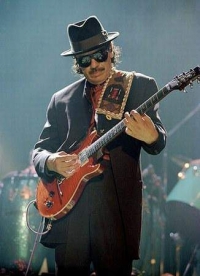
Santana is a flexible number of musicians accompanying Carlos Santana since the late 1960s. Just like Santana himself, the band is known for helping make Latin rock famous in the rest of the world.
The band was formed in 1966 in San Francisco. The first members were Carlos Santana (lead guitar), Tom Frazier (guitar), Mike Carabello (percussion), Rod Harper (drums), Gus Rodriguez (bass) and Gregg Rolie (keyboard, vocal). In the following years the members of the group changed frequently for a number of reasons, and from 1971 to 1972 there was a brief separation between the group and Santana.
Santana himself rarely sings in his songs despite being the leader of the band and recent hits have been frequently accompanied by a guest singer, rather than the members of the band.
In 1998, the group was inducted into the Rock & Roll Hall of Fame, with Carlos Santana, Jose Chepito Areas, David Brown, Mike Carabello, Gregg Rolie and Michael Shrieve being honored.
The band was formed in 1966 in San Francisco. The first members were Carlos Santana (lead guitar), Tom Frazier (guitar), Mike Carabello (percussion), Rod Harper (drums), Gus Rodriguez (bass) and Gregg Rolie (keyboard, vocal). In the following years the members of the group changed frequently for a number of reasons, and from 1971 to 1972 there was a brief separation between the group and Santana.
Santana himself rarely sings in his songs despite being the leader of the band and recent hits have been frequently accompanied by a guest singer, rather than the members of the band.
In 1998, the group was inducted into the Rock & Roll Hall of Fame, with Carlos Santana, Jose Chepito Areas, David Brown, Mike Carabello, Gregg Rolie and Michael Shrieve being honored.
Cannonball Adderley
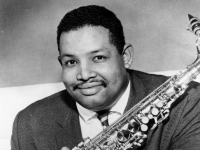
Julian Edwin "Cannonball" Adderley was an American jazz alto saxophonist of the hard bop era of the 1950s and 1960s. Adderley is remembered for his 1966 soul jazz single "Mercy, Mercy, Mercy", a crossover hit on the pop charts
Peacemaker Kurogane

Peacemaker Kurogane is a Japanese manga series written and illustrated created by Nanae Chrono. It is unrelated to the Peace Maker manga by Ryōji Minagawa.
Adam Longlands
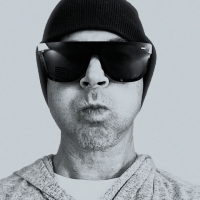
Adam Longlands is a singer/songwriter. He worked with Katy Perry on the following songs: Songs from The Matrix (2009): "Broken" "Damn" "Stay With Me" "Take ...
Gabriel Faure

Gabriel Urbain Fauré (12 May 1845 – 4 November 1924) was a French composer, organist, pianist, and teacher. He was the foremost French composer of his generation, and his musical style influenced many 20th century composers. His harmonic and melodic language affected how harmony was later taught.
Brahms

Johannes Brahms (May 7, 1833 â April 3, 1897) was a German composer of the Romantic period. He was born in Hamburg and in his later years he settled in Vienna, Austria.
Brahms maintained a Classical sense of form and order in his works â in contrast to the opulence of the music of many of his contemporaries. Thus many admirers (though not necessarily Brahms himself) saw him as the champion of traditional forms and "pure music," as opposed to the New German embrace of program music.
Brahms venerated Beethoven: in the composer's home, a marble bust of Beethoven looked down on the spot where he composed, and some passages in his works are reminiscent of Beethoven's style. The main theme of the finale of Brahms's First Symphony is reminiscent of the main theme of the finale of Beethoven's Ninth, and when this resemblance was pointed out to Brahms he replied that any ass â jeder Esel â could see that.
Ein deutsches Requiem was partially inspired by his mother's death in 1865, but also incorporates material from a Symphony he started in 1854, but abandoned following Schumann's suicide attempt. He once wrote that the Requiem "belonged to Schumann". The first movement of this abandoned Symphony was re-worked as the first movement of the First Piano Concerto.
Brahms also loved the Classical composers Mozart and Haydn. He collected first editions and autographs of their works, and edited performing editions. He also studied the music of pre-classical composers, including Giovanni Gabrieli, Johann Adolph Hasse, Heinrich Schütz and especially Johann Sebastian Bach. His friends included leading musicologists, and with Friedrich Chrysander he edited an edition of the works of François Couperin. He looked to older music for inspiration in the arts of strict counterpoint; the themes of some of his works are modelled on Baroque sources, such as Bach's The Art of Fugue in the fugal finale of Cello Sonata No. 1, or the same composer's Cantata No. 150 in the passacaglia theme of the Fourth Symphony's finale.
Brahms maintained a Classical sense of form and order in his works â in contrast to the opulence of the music of many of his contemporaries. Thus many admirers (though not necessarily Brahms himself) saw him as the champion of traditional forms and "pure music," as opposed to the New German embrace of program music.
Brahms venerated Beethoven: in the composer's home, a marble bust of Beethoven looked down on the spot where he composed, and some passages in his works are reminiscent of Beethoven's style. The main theme of the finale of Brahms's First Symphony is reminiscent of the main theme of the finale of Beethoven's Ninth, and when this resemblance was pointed out to Brahms he replied that any ass â jeder Esel â could see that.
Ein deutsches Requiem was partially inspired by his mother's death in 1865, but also incorporates material from a Symphony he started in 1854, but abandoned following Schumann's suicide attempt. He once wrote that the Requiem "belonged to Schumann". The first movement of this abandoned Symphony was re-worked as the first movement of the First Piano Concerto.
Brahms also loved the Classical composers Mozart and Haydn. He collected first editions and autographs of their works, and edited performing editions. He also studied the music of pre-classical composers, including Giovanni Gabrieli, Johann Adolph Hasse, Heinrich Schütz and especially Johann Sebastian Bach. His friends included leading musicologists, and with Friedrich Chrysander he edited an edition of the works of François Couperin. He looked to older music for inspiration in the arts of strict counterpoint; the themes of some of his works are modelled on Baroque sources, such as Bach's The Art of Fugue in the fugal finale of Cello Sonata No. 1, or the same composer's Cantata No. 150 in the passacaglia theme of the Fourth Symphony's finale.
Philip Glass
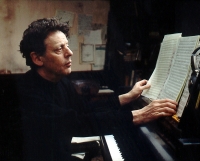
Philip Glass (born January 31, 1937) is a three-time Academy Award-nominated American classical music composer. He is considered one of the most influential composers of the late-20th century and is widely acknowledged as a composer who has brought art music to the American public (along with precursors such as Richard Strauss, Kurt Weill and Leonard Bernstein).
His music is described as minimalist, from which he distanced himself in being a composer of "music with repetitive structures". Although his early, mature music is minimalist, he has evolved stylistically. Currently, he describes himself as a "Classicist", trained in harmony and counterpoint and studied Johann Sebastian Bach, Ludwig van Beethoven, and Franz Schubert.
Glass is a prolific composer: he has written ensemble works, operas, eight symphonies, eight concertos, film scores, and solo works. Glass counts many visual artists, writers, musicians, and directors among his friends, including Richard Serra, Chuck Close, Doris Lessing, Allen Ginsberg, Errol Morris, Robert Wilson, JoAnne Akalaitis, John Moran, actors Bill Treacher and Peter Dean, Godfrey Reggio, Ravi Shankar, Linda Ronstadt, Paul Simon, David Bowie, Patti Smith, the conductor Dennis Russell Davies, and electronic musician Aphex Twin, who have all collaborated with him. Among recent collaborators are Glass's fellow New Yorkers Leonard Cohen, and Woody Allen. He composed an opera for the opening of Expo '98.
His music is described as minimalist, from which he distanced himself in being a composer of "music with repetitive structures". Although his early, mature music is minimalist, he has evolved stylistically. Currently, he describes himself as a "Classicist", trained in harmony and counterpoint and studied Johann Sebastian Bach, Ludwig van Beethoven, and Franz Schubert.
Glass is a prolific composer: he has written ensemble works, operas, eight symphonies, eight concertos, film scores, and solo works. Glass counts many visual artists, writers, musicians, and directors among his friends, including Richard Serra, Chuck Close, Doris Lessing, Allen Ginsberg, Errol Morris, Robert Wilson, JoAnne Akalaitis, John Moran, actors Bill Treacher and Peter Dean, Godfrey Reggio, Ravi Shankar, Linda Ronstadt, Paul Simon, David Bowie, Patti Smith, the conductor Dennis Russell Davies, and electronic musician Aphex Twin, who have all collaborated with him. Among recent collaborators are Glass's fellow New Yorkers Leonard Cohen, and Woody Allen. He composed an opera for the opening of Expo '98.
Koji Kondo

Koji Kondo (近藤浩治 Kondō Kōji?, born August 13, 1960) is a Japanese video game composer and sound director who has been employed at Nintendo since 1984. He is best known for scoring numerous titles in the Mario and The Legend of Zelda series.
Iron Maiden
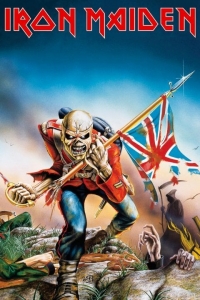
Iron Maiden are an English heavy metal band formed in Leyton, East London, in 1975 by bassist and primary songwriter Steve Harris. The band's discography has grown to thirty-nine albums, including sixteen studio albums, twelve live albums, four EPs, and seven compilations.Pioneers of the new wave of British heavy metal, Iron Maiden achieved initial success during the early 1980s. After several line-up changes, the band went on to release a series of UK and US platinum and gold albums, including 1982's The Number of the Beast, 1983's Piece of Mind, 1984's Powerslave, 1985's live release Live After Death, 1986's Somewhere in Time and 1988's Seventh Son of a Seventh Son.
Richard Clayderman

Richard Clayderman (born Philippe Pagès on December 28, 1953, Paris) is a French pianist who has released numerous albums including the original compositions by Paul de Senneville and Olivier Toussaint, and instrumental renditions of popular music, rearrangements of movie sound tracks, ethnic music, and easy-listening arrangements of most popular works of classical music.
In 1976 he was invited from Olivier Toussaint a French record producer and his partner Paul de Senneville to record a gentle piano ballad. Paul de Senneville had composed this ballad as a tribute to his new born daughter “Adeline”. The 23 year old Philippe Pagès was auditioned along with 20 other pianists. They liked his special and soft touch on the keyboards combined with his good looks and fine personality, and finally he got the job.
Philippe Pagès' name was changed to Richard Clayderman (he adopted his great-grandmother's last name to avoid mispronunciation of his real name outside France), and the single took off, selling an astonishing 22 million copies in 38 countries. It was called Ballade pour Adeline.
In 1976 he was invited from Olivier Toussaint a French record producer and his partner Paul de Senneville to record a gentle piano ballad. Paul de Senneville had composed this ballad as a tribute to his new born daughter “Adeline”. The 23 year old Philippe Pagès was auditioned along with 20 other pianists. They liked his special and soft touch on the keyboards combined with his good looks and fine personality, and finally he got the job.
Philippe Pagès' name was changed to Richard Clayderman (he adopted his great-grandmother's last name to avoid mispronunciation of his real name outside France), and the single took off, selling an astonishing 22 million copies in 38 countries. It was called Ballade pour Adeline.
Cristopher Simpson
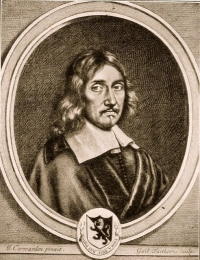
Christopher Simpson (1602/1606–1669) was an English musician and composer, particularly associated with music for the viola da gamba.Simpson was born between 1602 and 1606, probably at Egton, North Yorkshire. He was the eldest son of Christopher Sympson, a Yorkshireman, who is usually described as a cordwainer but who was also the manager of a theatre company patronised by wealthy Yorkshire Catholics. It is thought that Sympson senior may have preferred to portray himself at times as a simple craftsman, rather than a high-profile Catholic sympathiser, at a time when Catholics were harshly persecuted in England.
Jerry Goldsmith
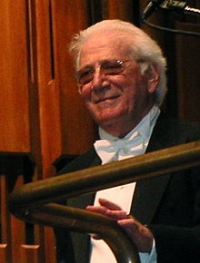
Jerrald King "Jerry" Goldsmith (February 10, 1929 – July 21, 2004) was an American composer and conductor most known for his work in film and television scoring.
He composed scores for such noteworthy films as The Sand Pebbles, Planet of the Apes, Patton, Chinatown, The Wind and the Lion, The Omen, The Boys from Brazil, Alien, Poltergeist, Gremlins, Hoosiers, Total Recall, Basic Instinct, Rudy, Air Force One, L.A. Confidential, Mulan, The Mummy, three Rambo films, and five Star Trek films. He was nominated for six Grammy Awards, nine Golden Globes, four BAFTAs, and seventeen Academy Awards. In 1977 he was awarded an Oscar for The Omen.
He collaborated with some of the most prolific directors in film history, including Robert Wise (The Sand Pebbles, Star Trek: The Motion Picture), Howard Hawks (Rio Lobo), Otto Preminger (In Harm's Way), Joe Dante (Gremlins, The 'Burbs, Small Soldiers), Roman Polanski (Chinatown), Ridley Scott (Alien, Legend), Steven Spielberg (Poltergeist, Twilight Zone: The Movie), and Paul Verhoeven (Total Recall, Basic Instinct). However, his most notable collaboration was arguably that with Franklin J. Schaffner, for whom Goldsmith scored such films as Planet of the Apes, Patton, Papillon, and The Boys from Brazil.
He composed scores for such noteworthy films as The Sand Pebbles, Planet of the Apes, Patton, Chinatown, The Wind and the Lion, The Omen, The Boys from Brazil, Alien, Poltergeist, Gremlins, Hoosiers, Total Recall, Basic Instinct, Rudy, Air Force One, L.A. Confidential, Mulan, The Mummy, three Rambo films, and five Star Trek films. He was nominated for six Grammy Awards, nine Golden Globes, four BAFTAs, and seventeen Academy Awards. In 1977 he was awarded an Oscar for The Omen.
He collaborated with some of the most prolific directors in film history, including Robert Wise (The Sand Pebbles, Star Trek: The Motion Picture), Howard Hawks (Rio Lobo), Otto Preminger (In Harm's Way), Joe Dante (Gremlins, The 'Burbs, Small Soldiers), Roman Polanski (Chinatown), Ridley Scott (Alien, Legend), Steven Spielberg (Poltergeist, Twilight Zone: The Movie), and Paul Verhoeven (Total Recall, Basic Instinct). However, his most notable collaboration was arguably that with Franklin J. Schaffner, for whom Goldsmith scored such films as Planet of the Apes, Patton, Papillon, and The Boys from Brazil.
Thomas Weelkes

Thomas Weelkes (baptised 25 October 1576 – 30 November 1623) was an English composer and organist. He became organist of Winchester College in 1598, moving to Chichester Cathedral. His works are chiefly vocal, and include madrigals, anthems and services.Weelkes was baptised in the little village church of Elsted near Chichester in West Sussex on 25 October 1576. It has been suggested that his father was John Weeke, rector of Elsted, although there is no documentary evidence of the relationship. In 1597 his first volume of madrigals was published, the preface noting that he was a very young man when they were written; this helps to fix the date of his birth to somewhere in the middle of the 1570s. Early in his life he was in service at the house of the courtier Edward Darcye.
Astor Piazzolla

Ástor Pantaleón Piazzolla (March 11, 1921 – July 4, 1992) was an Argentine tango composer and bandoneón player. His oeuvre revolutionized the traditional tango into a new style termed nuevo tango, incorporating elements from jazz and classical music. An excellent bandoneonist, he regularly performed his own compositions with different ensembles.
Piazzolla's nuevo tango was distinct from the traditional tango in its incorporation of elements of jazz, its use of extended harmonies and dissonance, its use of counterpoint, and its ventures into extended compositional forms. As Argentine psychoanalyst Carlos Kuri has pointed out, Piazzolla's fusion of tango with this wide range of other recognizable Western musical elements was so successful that it produced a new individual style transcending these influences. It is precisely this success, and individuality, that makes it hard to pin down where particular influences reside in his compositions, but some aspects are clear. The use of the passacaglia technique of a circulating bass line and harmonic sequence, invented and much used in 17th and 18th century baroque music but also central to the idea of jazz "changes", predominates in most of Piazzolla's mature compositions. Another clear reference to the baroque is the often complex and virtuosic counterpoint that sometimes follows strict fugal behavior but more often simply allows each performer in the group to assert his voice. A further technique that emphasises this sense of democracy and freedom among the musicians is improvisation that is borrowed from jazz in concept, but in practice involves a different vocabulary of scales and rhythms that stay within the parameters of the established tango sound-world. Pablo Ziegler has been particularly responsible for developing this aspect of the style both within Piazzolla's groups and since the composer's death.
Piazzolla's nuevo tango was distinct from the traditional tango in its incorporation of elements of jazz, its use of extended harmonies and dissonance, its use of counterpoint, and its ventures into extended compositional forms. As Argentine psychoanalyst Carlos Kuri has pointed out, Piazzolla's fusion of tango with this wide range of other recognizable Western musical elements was so successful that it produced a new individual style transcending these influences. It is precisely this success, and individuality, that makes it hard to pin down where particular influences reside in his compositions, but some aspects are clear. The use of the passacaglia technique of a circulating bass line and harmonic sequence, invented and much used in 17th and 18th century baroque music but also central to the idea of jazz "changes", predominates in most of Piazzolla's mature compositions. Another clear reference to the baroque is the often complex and virtuosic counterpoint that sometimes follows strict fugal behavior but more often simply allows each performer in the group to assert his voice. A further technique that emphasises this sense of democracy and freedom among the musicians is improvisation that is borrowed from jazz in concept, but in practice involves a different vocabulary of scales and rhythms that stay within the parameters of the established tango sound-world. Pablo Ziegler has been particularly responsible for developing this aspect of the style both within Piazzolla's groups and since the composer's death.
Eric Clapton
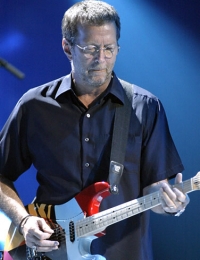
Eric Patrick Clapton, CBE (born 30 March 1945), is an English blues-rock guitarist, singer, songwriter and composer. He is one of the most successful musicians of the 20th and 21st centuries, garnering an unprecedented three inductions into the Rock and Roll Hall of Fame (The Yardbirds, Cream, and solo). Often viewed by critics and fans alike as one of the greatest guitarists of all time, Clapton was ranked fourth in Rolling Stone Magazine's list of the "100 Greatest Guitarists of All Time" and #53 on their list of the Immortals: 100 Greatest Artists of All Time.
Although Clapton's musical style has varied throughout his career, it has usually remained rooted in the blues. Clapton is credited as an innovator in several phases of his career, which have included blues-rock (with John Mayall & the Bluesbreakers and The Yardbirds) and psychedelic rock (with Cream). Clapton has also achieved great chart success in genres ranging from Delta blues (Me and Mr. Johnson) to pop ("Change the World") and reggae (Bob Marley's "I Shot the Sheriff"). Clapton also achieved fame with Derek and the Dominos through the hit song "Layla".
Although Clapton's musical style has varied throughout his career, it has usually remained rooted in the blues. Clapton is credited as an innovator in several phases of his career, which have included blues-rock (with John Mayall & the Bluesbreakers and The Yardbirds) and psychedelic rock (with Cream). Clapton has also achieved great chart success in genres ranging from Delta blues (Me and Mr. Johnson) to pop ("Change the World") and reggae (Bob Marley's "I Shot the Sheriff"). Clapton also achieved fame with Derek and the Dominos through the hit song "Layla".
John Philip Sousa
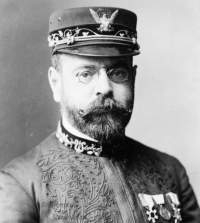
John Philip Sousa (November 6, 1854 – March 6, 1932) was an American composer and conductor of the late Romantic era known particularly for American military and patriotic marches. Because of his mastery of march composition and resultant prominence, he is known as "The March King". In public he was typically referenced by his full name.
Thomas Newman
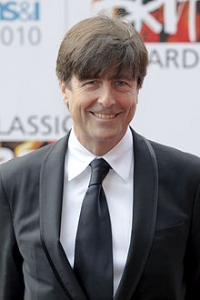
Thomas Montgomery Newman (born October 20, 1955) is an American composer best known for his many film scores.
Newman has been nominated for fourteen Academy Awards and three Golden Globes, and has won two BAFTAs, six Grammys and an Emmy Award. Newman was honored with the Richard Kirk award at the 2000 BMI Film and TV Awards. The award is given annually to a composer who has made significant contributions to film and television music.
Newman has been nominated for fourteen Academy Awards and three Golden Globes, and has won two BAFTAs, six Grammys and an Emmy Award. Newman was honored with the Richard Kirk award at the 2000 BMI Film and TV Awards. The award is given annually to a composer who has made significant contributions to film and television music.
Dilermando Reis
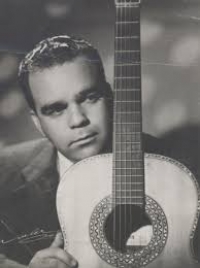
Dilermando Reis (full name "Dilermando dos Santos Reis") (September 22, 1916 – January 2, 1977) was a Brazilian musician, composer, guitarist and music teacher.He once had Juscelino Kubitschek's (the former Brazilian president) daughter as a student. Other students included Bola Sete, Nicanor Teixeira, Darcy Vila Verde and many others.
He left 23 LPs as a soloist (often with unattributed accompaniment from Meira, or later Dino Sete Cordas) and seven accompanying the singer Francisco Petronio. David Russell has performed his works on guitar. Raphael Rabello recorded an entire CD of his work.
He left 23 LPs as a soloist (often with unattributed accompaniment from Meira, or later Dino Sete Cordas) and seven accompanying the singer Francisco Petronio. David Russell has performed his works on guitar. Raphael Rabello recorded an entire CD of his work.
Carter Burwell
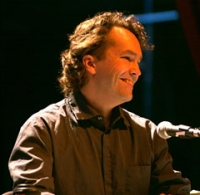
Carter Burwell (born November 18, 1955) is an American composer of film scores.
Burwell was born in New York City. He graduated from King School in Stamford, Connecticut, and Harvard College.
As a film composer, Burwell has had a long working relationship with the Coen Brothers, providing music for every film they have made (except for O Brother, Where Art Thou?, where he simply provided additional music to a score primarily composed by T Bone Burnett). He enjoys working with left-field directors and has also scored Spike Jonze's films. Among his best known film scores are And the Band Played On (1993), Conspiracy Theory (1997), Hamlet (2000), The Spanish Prisoner (1997), Before the Devil Knows You're Dead (2007), In Bruges (2008) and Twilight (2008).
Burwell, like many composers, studied piano. Starting lessons when he was 7, he studied Mozart mostly, but eventually quit.
In April 2005, Burwell composed and conducted music, performed by The Parabola Ensemble, for the plays "Sawbones" written and directed by the Coen Brothers, "Hope Leaves the Theater" written and directed by Charlie Kaufman and "Anomalisa" written and directed by Francis Fregoli. This was a segment of the sound-only production Theater of the New Ear, which debuted at St. Ann's Warehouse in Brooklyn, NY with support from Sirius Satellite Radio, United Talent Agency and Sony Pictures.
Burwell married Christine Sciulli in 1999.
Burwell was born in New York City. He graduated from King School in Stamford, Connecticut, and Harvard College.
As a film composer, Burwell has had a long working relationship with the Coen Brothers, providing music for every film they have made (except for O Brother, Where Art Thou?, where he simply provided additional music to a score primarily composed by T Bone Burnett). He enjoys working with left-field directors and has also scored Spike Jonze's films. Among his best known film scores are And the Band Played On (1993), Conspiracy Theory (1997), Hamlet (2000), The Spanish Prisoner (1997), Before the Devil Knows You're Dead (2007), In Bruges (2008) and Twilight (2008).
Burwell, like many composers, studied piano. Starting lessons when he was 7, he studied Mozart mostly, but eventually quit.
In April 2005, Burwell composed and conducted music, performed by The Parabola Ensemble, for the plays "Sawbones" written and directed by the Coen Brothers, "Hope Leaves the Theater" written and directed by Charlie Kaufman and "Anomalisa" written and directed by Francis Fregoli. This was a segment of the sound-only production Theater of the New Ear, which debuted at St. Ann's Warehouse in Brooklyn, NY with support from Sirius Satellite Radio, United Talent Agency and Sony Pictures.
Burwell married Christine Sciulli in 1999.
David Joseph
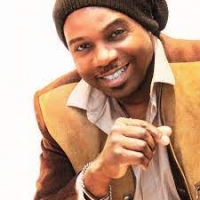
David Joseph was the keyboardist and at times de facto leader of Hi-Tension, a late-'70s disco outfit whose hits such as the "British Hustle" were largely confined to the United Kingdom. Joseph left the band in 1984, a year after releasing a solo album on Island Records.
Lm. Mi Tram
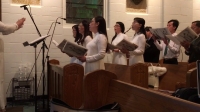
Lm Mi Trầm Musical artist Genre: Christian Songs Tết Đến Rồi Mừng Xuân · 2018 Xuân Vừa Sang Mừng Xuân · 2018
Nhớ Tổ Tiên Mừng Xuân · 2018
Nhớ Tổ Tiên Mừng Xuân · 2018
Coldplay

Coldplay are a rock band formed in London, England in 1997. The group comprises vocalist/pianist/guitarist Chris Martin, lead guitarist Jonny Buckland, bassist Guy Berryman, and drummer/multi-instrumentalist Will Champion. Coldplay have sold 34.6 million albums, and are also known for their hit singles, such as "Yellow", "The Scientist", "Speed of Sound", "Fix You", "Viva la Vida" and the Grammy Award-winning "Clocks".
Coldplay achieved worldwide fame with the release of their single "Yellow", followed by their debut album, Parachutes (2000), which was nominated for the Mercury Prize. Its follow-up, A Rush of Blood to the Head (2002) won multiple awards such as NME's Album of the Year and was later included on Rolling Stone magazine's 500 Greatest Albums of All Time list, ranking at #473. Their next release, X&Y (2005), received a slightly less enthusiastic yet still generally positive reception. The band's fourth studio album, Viva la Vida or Death and All His Friends (2008), was produced by Brian Eno and released again to largely favourable reviews. All of Coldplay's albums have enjoyed great commercial success.
Coldplay's early material was compared to acts such as Jeff Buckley, U2, and Travis. Coldplay have been an active supporter of various social and political causes, such as Oxfam's Make Trade Fair campaign and Amnesty International. The group have also performed at various charity projects such as Band Aid 20, Live 8, and the Teenage Cancer Trust.
Coldplay achieved worldwide fame with the release of their single "Yellow", followed by their debut album, Parachutes (2000), which was nominated for the Mercury Prize. Its follow-up, A Rush of Blood to the Head (2002) won multiple awards such as NME's Album of the Year and was later included on Rolling Stone magazine's 500 Greatest Albums of All Time list, ranking at #473. Their next release, X&Y (2005), received a slightly less enthusiastic yet still generally positive reception. The band's fourth studio album, Viva la Vida or Death and All His Friends (2008), was produced by Brian Eno and released again to largely favourable reviews. All of Coldplay's albums have enjoyed great commercial success.
Coldplay's early material was compared to acts such as Jeff Buckley, U2, and Travis. Coldplay have been an active supporter of various social and political causes, such as Oxfam's Make Trade Fair campaign and Amnesty International. The group have also performed at various charity projects such as Band Aid 20, Live 8, and the Teenage Cancer Trust.
Ragtime
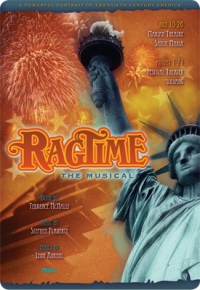
Ragtime is a musical with a book by Terrence McNally, lyrics by Lynn Ahrens, and music by Stephen Flaherty.
Based on the 1975 novel by E. L. Doctorow, Ragtime tells the story of three groups in America, represented by Coalhouse Walker Jr., a Harlem musician; Mother, the matriarch of a WASP family in New Rochelle, NY; and Tateh, a Latvian Jewish immigrant. Historical figures such as Houdini, Evelyn Nesbit, Booker T. Washington, J. P. Morgan, Henry Ford, Stanford White, Harry Kendall Thaw, Admiral Peary, Matthew Henson, and Emma Goldman also appear. The music includes marches, cakewalks, gospel and ragtime. The show is mostly sung-through, with very little spoken dialogue.
Based on the 1975 novel by E. L. Doctorow, Ragtime tells the story of three groups in America, represented by Coalhouse Walker Jr., a Harlem musician; Mother, the matriarch of a WASP family in New Rochelle, NY; and Tateh, a Latvian Jewish immigrant. Historical figures such as Houdini, Evelyn Nesbit, Booker T. Washington, J. P. Morgan, Henry Ford, Stanford White, Harry Kendall Thaw, Admiral Peary, Matthew Henson, and Emma Goldman also appear. The music includes marches, cakewalks, gospel and ragtime. The show is mostly sung-through, with very little spoken dialogue.
Evanescence

Evanescence is an American rock band founded in Little Rock, Arkansas in 1995 by singer/pianist Amy Lee and guitarist Ben Moody.
After recording two private EPs and a demo CD named Origin, with the help of Bigwig Enterprises in 2000, the band released their first full-length album, Fallen, on Wind-up Records in 2003. Fallen sold more than 15 million copies worldwide and helped the band win two Grammy Awards. A year later, Evanescence released their first live album, Anywhere but Home, which sold more than one million copies worldwide. In 2006, the band released their second studio album, The Open Door, which has sold more than four million copies.
The band has suffered several line-up changes, including co-founder Moody leaving in 2003, followed by guitarist John LeCompt and drummer Rocky Gray in 2007. Lee is now the only original member of Evanescence remaining in the band.
After recording two private EPs and a demo CD named Origin, with the help of Bigwig Enterprises in 2000, the band released their first full-length album, Fallen, on Wind-up Records in 2003. Fallen sold more than 15 million copies worldwide and helped the band win two Grammy Awards. A year later, Evanescence released their first live album, Anywhere but Home, which sold more than one million copies worldwide. In 2006, the band released their second studio album, The Open Door, which has sold more than four million copies.
The band has suffered several line-up changes, including co-founder Moody leaving in 2003, followed by guitarist John LeCompt and drummer Rocky Gray in 2007. Lee is now the only original member of Evanescence remaining in the band.
Waldteufel
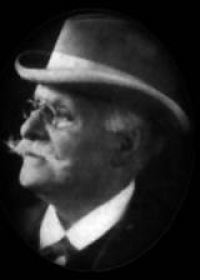
Émile Waldteufel (9 December 1837 – 12 February 1915) was a French composer of dance music.
Chopin

Frédéric Chopin (1 March 1810 – 17 October 1849) was a Polish composer and virtuoso pianist of the Romantic period. He is widely regarded as the greatest Polish composer, and ranks as one of music's greatest tone poets.
He was born in the village of Żelazowa Wola, in the Duchy of Warsaw, to a Polish mother and French-expatriate father, and in his early life was regarded as a child-prodigy pianist. In November 1830, at the age of 20, Chopin went abroad; following the suppression of the Polish November Uprising of 1830–31, he became one of many expatriates of the Polish "Great Emigration."
In Paris, he made a comfortable living as a composer and piano teacher, while giving few public performances. A Polish patriot,
Chopin's extant compositions were written primarily for the piano as a solo instrument. Though technically demanding, Chopin's style emphasizes nuance and expressive depth rather than virtuosity. Chopin invented musical forms such as the ballade and was responsible for major innovations in forms such as the piano sonata, waltz, nocturne, étude, impromptu and prelude. His works are mainstays of Romanticism in 19th-century classical music.
He was born in the village of Żelazowa Wola, in the Duchy of Warsaw, to a Polish mother and French-expatriate father, and in his early life was regarded as a child-prodigy pianist. In November 1830, at the age of 20, Chopin went abroad; following the suppression of the Polish November Uprising of 1830–31, he became one of many expatriates of the Polish "Great Emigration."
In Paris, he made a comfortable living as a composer and piano teacher, while giving few public performances. A Polish patriot,
Chopin's extant compositions were written primarily for the piano as a solo instrument. Though technically demanding, Chopin's style emphasizes nuance and expressive depth rather than virtuosity. Chopin invented musical forms such as the ballade and was responsible for major innovations in forms such as the piano sonata, waltz, nocturne, étude, impromptu and prelude. His works are mainstays of Romanticism in 19th-century classical music.
Cole Porter

Cole Albert Porter (June 9, 1891 – October 15, 1964) was an American composer and songwriter. His works include the musical comedies Kiss Me, Kate, Fifty Million Frenchmen, DuBarry Was a Lady and Anything Goes, as well as songs like "Night and Day", "I Get a Kick out of You", "Well, Did You Evah!" and "I've Got You Under My Skin". He was noted for his sophisticated, bawdy lyrics, clever rhymes and complex forms. Porter was one of the greatest contributors to the Great American Songbook. Cole Porter is one of the few Tin Pan Alley composers to have written both the lyrics and the music for his songs.
[Title of Show]
![[Title of Show]](/artistimgs/202102/01/4812_Title_of_Show.jpg)
is a one-act musical, with music and lyrics by Jeff Bowen and a book by Hunter Bell. The show chronicles its own creation as an entry in the New York Musical Theatre Festival, and follows the struggles of the author and composer/lyricist and their two actress friends during the initial brief (three-week) creative period, along with subsequent events leading up to the show's production.
Witold Lutosławski
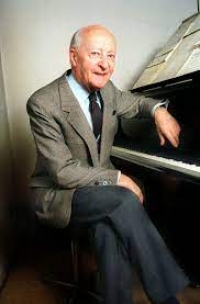
Witold Roman Lutosławski (Polish: (About this soundlisten); 25 January 1913 – 7 February 1994) was a Polish composer and conductor. Among the major composers of the 20th century, he is "generally regarded as the most significant Polish composer since Szymanowski, and possibly the greatest Polish composer since Chopin". His compositions—of which he was a notable conductor—include representatives of most traditional genres, aside from opera: symphonies, various orchestral works, chamber works, concertos, and song cycles, some of which he orchestrated. Of these, his best known works are his four symphonies, the Concerto for Orchestra (1954), the song cycle Twenty Polish Christmas Carols (1946), and a cello concerto (1970).
Agustin Argentino Cornejo
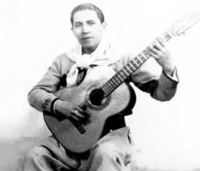
Agustín Cornejo Argentina guitarist Born: August 28, 1899 Died: October 9, 1965 Songs Nostalgia Meditando Esos Tus Ojos Negros
Alanis Morissette

Alanis Nadine Morissette (born June 1, 1974) is a Canadian-born singer-songwriter, record producer, and actress. She has won 12 Juno Awards and seven Grammy Awards, and has sold over 55 million albums worldwide. Morissette began her career in Canada, and as a teenager recorded two dance-pop albums, Alanis and Now Is the Time, under MCA Records. Her international debut album was the rock-influenced Jagged Little Pill, which remains the best-selling debut album by a female artist in the U.S., and the highest selling debut album worldwide in music history, selling 30 million records worlwide. According to RIAA and United World Charts, Alanis is the biggest selling female rock artist in music. Her following album, Supposed Former Infatuation Junkie, was released in 1998 and was a success as well. Morissette took up producing duties for her subsequent albums, which include Under Rug Swept, So-Called Chaos and latest release Flavors of Entanglement. In February 2005, Morissette became a naturalized citizen of the United States while maintaining her Canadian citizenship.
Agustin Barrios
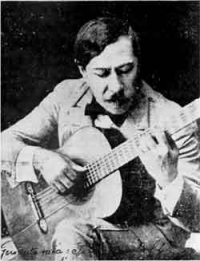
Agustín Pío Barrios (also known as Agustín Barrios Mangoré. May 5, 1885 - Aug 7 1944), an eminent Paraguayan guitarist and composer, was born May 5, 1885, in the department of Misiones, Paraguay and died August 7, 1944 in San Salvador, El Salvador. It has been generally accepted that the guitarist was born in San Juan Bautista in Misiones, however, there is no definitive proof of this as his baptismal document found in the book of registries in the cathedral in San Juan Bautista does not state his precise place of birth. Also, several biographers and authorities present convincing documented evidence that Barrios was born, instead, in the nearby town of Villa Florida, Misiones, situated on the Tebicuary River some 30 km north of San Juan Bautista.
Leona Lewis

Leona Louise Lewis (born 3 April 1985) is an English pop and R&B singer-songwriter, and the winner of the third series of UK television talent show The X Factor. Her UK debut single, "A Moment Like This", broke a world record after it was downloaded over 50,000 times within 30 minutes.
Her second single, "Bleeding Love", was the biggest-selling single of 2007 in the UK, topped over thirty national singles charts and became a number one single on the first week in France and number one in the United States.
Her debut album, Spirit, was released in Europe in November 2007, and became the fastest-selling debut album ever in both the United Kingdom and Ireland. Released in North America in April 2008, Spirit debuted at number one on the US Billboard 200 chart and made Lewis the first British solo artist to top the chart with a debut album.
With her album reaching number one in at least three continents and nine countries, Lewis has had one of the most successful launches of any television talent show contestant ever.
Her second single, "Bleeding Love", was the biggest-selling single of 2007 in the UK, topped over thirty national singles charts and became a number one single on the first week in France and number one in the United States.
Her debut album, Spirit, was released in Europe in November 2007, and became the fastest-selling debut album ever in both the United Kingdom and Ireland. Released in North America in April 2008, Spirit debuted at number one on the US Billboard 200 chart and made Lewis the first British solo artist to top the chart with a debut album.
With her album reaching number one in at least three continents and nine countries, Lewis has had one of the most successful launches of any television talent show contestant ever.
Dizzy Gillespie
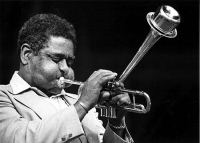
John Birks "Dizzy" Gillespie (pronounced /ɡɨˈlɛspi/; October 21, 1917 – January 6, 1993) was an American jazz trumpet player, bandleader, singer, and composer dubbed "the sound of surprise".
Together with Charlie Parker, he was a major figure in the development of bebop and modern jazz. He taught and influenced many other musicians, including trumpeters Miles Davis, Fats Navarro, Clifford Brown, Arturo Sandoval, Lee Morgan, Jon Faddis and Chuck Mangione.
Allmusic's Scott Yanow wrote that "Dizzy Gillespie's contributions to jazz were huge. One of the greatest jazz trumpeters of all time (some would say the best), Gillespie was such a complex player that his contemporaries ended up copying Miles Davis and Fats Navarro instead, and it was not until Jon Faddis's emergence in the 1970s that Dizzy's style was successfully recreated . . . Arguably Gillespie is remembered, by both critics and fans alike, as one of the greatest jazz trumpeters of all time.
In addition to featuring in the epochal moments in bebop, he was instrumental in founding Afro-Cuban jazz, the modern jazz version of what early-jazz pioneer Jelly Roll Morton referred to as the "Spanish Tinge". Gillespie was a trumpet virtuoso and gifted improviser, building on the virtuoso style of Roy Eldridge but adding layers of harmonic complexity previously unknown in jazz. Dizzy's beret and horn-rimmed spectacles, his scat singing, his bent horn, pouched cheeks and his light-hearted personality were essential in popularizing bebop.
Together with Charlie Parker, he was a major figure in the development of bebop and modern jazz. He taught and influenced many other musicians, including trumpeters Miles Davis, Fats Navarro, Clifford Brown, Arturo Sandoval, Lee Morgan, Jon Faddis and Chuck Mangione.
Allmusic's Scott Yanow wrote that "Dizzy Gillespie's contributions to jazz were huge. One of the greatest jazz trumpeters of all time (some would say the best), Gillespie was such a complex player that his contemporaries ended up copying Miles Davis and Fats Navarro instead, and it was not until Jon Faddis's emergence in the 1970s that Dizzy's style was successfully recreated . . . Arguably Gillespie is remembered, by both critics and fans alike, as one of the greatest jazz trumpeters of all time.
In addition to featuring in the epochal moments in bebop, he was instrumental in founding Afro-Cuban jazz, the modern jazz version of what early-jazz pioneer Jelly Roll Morton referred to as the "Spanish Tinge". Gillespie was a trumpet virtuoso and gifted improviser, building on the virtuoso style of Roy Eldridge but adding layers of harmonic complexity previously unknown in jazz. Dizzy's beret and horn-rimmed spectacles, his scat singing, his bent horn, pouched cheeks and his light-hearted personality were essential in popularizing bebop.
Guus Meeuwis

Gustaaf Stephanus Modestus "Guus" Meeuwis is a Dutch singer-songwriter. As part of the Vagant group, he made several hits in the Netherlands and Flander in the 1990s and the first decade of the 2000s.
J. S. Bach
Johann Sebastian Bach (21 March 1685, O.S.31 March 1685, N.S. – 28 July 1750, N.S.) was a German composer, organist, harpsichordist, violist, and violinist whose sacred and secular works for choir, orchestra, and solo instruments drew together the strands of the Baroque period and brought it to its ultimate maturity. Although he did not introduce new forms, he enriched the prevailing German style with a robust contrapuntal technique, an unrivalled control of harmonic and motivic organisation, and the adaptation of rhythms, forms and textures from abroad, particularly from Italy and France.
Revered for their intellectual depth, technical command and artistic beauty, Bach's works include the Brandenburg Concertos, the Goldberg Variations, the Partitas, The Well-Tempered Clavier, the Mass in B minor, the St Matthew Passion, the St John Passion, the Magnificat, A Musical Offering, The Art of Fugue, the English and French Suites, the Sonatas and Partitas for solo violin, the Cello Suites, more than 200 surviving cantatas, and a similar number of organ works, including the famous Toccata and Fugue in D minor and Passacaglia and Fugue in C minor, as well as the Great Eighteen Chorale Preludes and Organ Mass.
Bach's abilities as an organist were highly respected throughout Europe during his lifetime, although he was not widely recognised as a great composer until a revival of interest and performances of his music in the first half of the 19th century. He is now generally regarded as one of the main composers of the Baroque style, and as one of the greatest composers of all time.
Revered for their intellectual depth, technical command and artistic beauty, Bach's works include the Brandenburg Concertos, the Goldberg Variations, the Partitas, The Well-Tempered Clavier, the Mass in B minor, the St Matthew Passion, the St John Passion, the Magnificat, A Musical Offering, The Art of Fugue, the English and French Suites, the Sonatas and Partitas for solo violin, the Cello Suites, more than 200 surviving cantatas, and a similar number of organ works, including the famous Toccata and Fugue in D minor and Passacaglia and Fugue in C minor, as well as the Great Eighteen Chorale Preludes and Organ Mass.
Bach's abilities as an organist were highly respected throughout Europe during his lifetime, although he was not widely recognised as a great composer until a revival of interest and performances of his music in the first half of the 19th century. He is now generally regarded as one of the main composers of the Baroque style, and as one of the greatest composers of all time.
Bach

Johann Sebastian Bach (31 March 1685 – 28 July 1750) was a German composer and organist whose sacred and secular works for choir, orchestra, and solo instruments drew together the strands of the Baroque period and brought it to its ultimate maturity. Although he introduced no new forms, he enriched the prevailing German style with a robust contrapuntal technique, an unrivalled control of harmonic and motivic organisation in composition for diverse musical forces, and the adaptation of rhythms and textures from abroad, particularly Italy and France.
Revered for their intellectual depth and technical and artistic beauty, Bach's works include the Brandenburg concertos; the Goldberg Variations; the English Suites, French Suites, Partitas, and Well-Tempered Clavier; the Mass in B Minor; the St. Matthew Passion; the St. John Passion; The Musical Offering; The Art of Fugue; the Sonatas and Partitas for violin solo; the Cello Suites; more than 200 surviving cantatas; and a similar number of organ works, including the celebrated Toccata and Fugue in D Minor.
While Bach's fame as an organist was great during his lifetime, he was not particularly well-known as a composer. His adherence to Baroque forms and contrapuntal style was considered "old-fashioned" by his contemporaries, especially late in his career when the musical fashion tended towards Rococo and later Classical styles. A revival of interest and performances of his music began early in the 19th century, and he is now widely considered to be one of the greatest composers in the Western tradition.
Revered for their intellectual depth and technical and artistic beauty, Bach's works include the Brandenburg concertos; the Goldberg Variations; the English Suites, French Suites, Partitas, and Well-Tempered Clavier; the Mass in B Minor; the St. Matthew Passion; the St. John Passion; The Musical Offering; The Art of Fugue; the Sonatas and Partitas for violin solo; the Cello Suites; more than 200 surviving cantatas; and a similar number of organ works, including the celebrated Toccata and Fugue in D Minor.
While Bach's fame as an organist was great during his lifetime, he was not particularly well-known as a composer. His adherence to Baroque forms and contrapuntal style was considered "old-fashioned" by his contemporaries, especially late in his career when the musical fashion tended towards Rococo and later Classical styles. A revival of interest and performances of his music began early in the 19th century, and he is now widely considered to be one of the greatest composers in the Western tradition.
Alan Silverstri
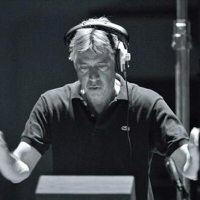
Alan Anthony Silvestri is an American composer and conductor known for his film and television scores. He is best known for his frequent collaboration with Robert Zemeckis, composing for such major hit films as the Back to the Future trilogy, Who Framed Roger Rabbit, Cast Away, and Forrest Gump
Music theory

Music theory is the study of the practices and possibilities of music. The Oxford Companion to Music describes three interrelated uses of the term "music theory"
billy cobham
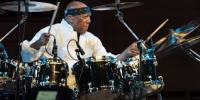
William Emanuel Cobham Jr. (born May 16, 1944) is a Panamanian-American jazz drummer who came to prominence in the late 1960s and early 1970s with trumpeter Miles Davis and then with the Mahavishnu Orchestra. According to AllMusic's reviewer, Cobham is "generally acclaimed as fusion's greatest drummer".
He was inducted into the Modern Drummer Hall of Fame in 1987 and the Classic Drummer Hall of Fame in 2013.
He was inducted into the Modern Drummer Hall of Fame in 1987 and the Classic Drummer Hall of Fame in 2013.
Sally DeFord

Sally DeFord Musical artist Born: 1959 (age 60 years), Eugene, Oregon, United States
Record labels: Defordmusic, Defordmusic.com, Sally DeFord Music, Sally DeFord
Genres: Alt Contemporary Christian, Christian/Gospel
Albums: He Is My Song, MORE
Record labels: Defordmusic, Defordmusic.com, Sally DeFord Music, Sally DeFord
Genres: Alt Contemporary Christian, Christian/Gospel
Albums: He Is My Song, MORE
Isaac Albeniz

Isaac Albéniz i Pascual (Spanish pronunciation: ) (May 29, 1860 – May 18, 1909) was a Spanish pianist and composer best known for his piano works based on folk music.
Albéniz’ Suite Española Op.47 is comprised mainly of pieces written in 1886, and grouped together in 1887 in honor of the Queen of Spain. Like many of Albéniz' piano pieces, these works are miniature tone pictures of different geographical regions and musical idioms of Spain. The eight original titles are Granada, Cataluna, Sevilla, Cadiz, Asturias, Aragon, Castilla and Cuba but only the first three titles and Cuba appeared in the original collection. The other pieces were published in later collections, often with different titles. The publisher Hofmeister published all eight titles of Suite Espanola in 1911 after Albéniz’ death, appropriating other pieces for the other four titles so those pieces do not always accurately reflect the geographic designation of the titles, most obviously in the case of Asturias (Leyenda) whose Andalusian flamenco rhythms bear little resemblance to the music of the northern province Asturias. The opus number 47 assigned by Hofmeister has no relation to any chronological order in Albéniz’ oeuvre, in which opus numbers were randomly given by publishers or by Albéniz himself, with some pieces appearing in more than one collection.
Albéniz’ Suite Española Op.47 is comprised mainly of pieces written in 1886, and grouped together in 1887 in honor of the Queen of Spain. Like many of Albéniz' piano pieces, these works are miniature tone pictures of different geographical regions and musical idioms of Spain. The eight original titles are Granada, Cataluna, Sevilla, Cadiz, Asturias, Aragon, Castilla and Cuba but only the first three titles and Cuba appeared in the original collection. The other pieces were published in later collections, often with different titles. The publisher Hofmeister published all eight titles of Suite Espanola in 1911 after Albéniz’ death, appropriating other pieces for the other four titles so those pieces do not always accurately reflect the geographic designation of the titles, most obviously in the case of Asturias (Leyenda) whose Andalusian flamenco rhythms bear little resemblance to the music of the northern province Asturias. The opus number 47 assigned by Hofmeister has no relation to any chronological order in Albéniz’ oeuvre, in which opus numbers were randomly given by publishers or by Albéniz himself, with some pieces appearing in more than one collection.
Schmitt
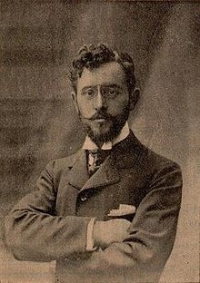
Florent Schmitt (September 28, 1870 – August 17, 1958) was a French composer.
Athur Laurent
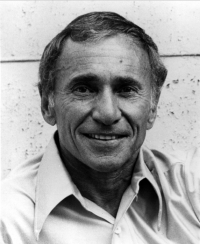
Arthur Laurents (July 14, 1917 – May 5, 2011) was an American playwright, stage director and screenwriter.
After writing scripts for radio shows after college and then training films for the U.S. Army during World War II, Laurents turned to writing for Broadway, producing a body of work that includes West Side Story (1957), Gypsy (1959), and Hallelujah, Baby! (1967), and directing some of his own shows and other Broadway productions.
His early film scripts include Rope (1948) for Alfred Hitchcock, followed by Anastasia (1956), Bonjour Tristesse (1958), The Way We Were (1973), and The Turning Point (1977).
Contents
1 Early life
2 Theatrical career
3 Film career
4 Blacklist
5 Memoirs
6 Death
7 Work
7.1 Writing
7.2 Directing
7.3 Additional credits
8 Awards, nominations and honors
9 See also
10 References
11 Further reading
12 External links
Early life
Born Arthur Levine, Laurents was the son of middle-class Jewish parents, a lawyer and a schoolteacher who gave up her career when she married. He was born and raised in the Flatbush section of Brooklyn, a borough of New York City, New York, the elder of two children, and attended Erasmus Hall High School. His sister Edith suffered from chorea as a child.
His paternal grandparents were Orthodox Jews, and his mother's parents, although born Jewish, were atheists. His mother kept a kosher home for her husband's sake, but was lax about attending synagogue and observing the Jewish holidays. His Bar Mitzvah marked the end of Laurents's religious education and the beginning of his rejection of all fundamentalist religions, although he continued to identify himself as Jewish. However, late in life he admitted to having changed his last name from Levine to the less Jewish-sounding Laurents, "to get a job."
After graduating from Cornell University, Laurents took an evening class in radio writing at New York University. William N. Robson, his instructor, a CBS Radio director/producer, submitted his script Now Playing Tomorrow, a comedic fantasy about clairvoyance, to the network, and it was produced in the Columbia Workshop series on January 30, 1939, with Shirley Booth in the lead role. It was Laurents' first professional credit. The show's success led to him being hired to write scripts for various radio shows, among them Lux Radio Theater. Laurents' career was interrupted when he was drafted into the U.S. Army in the middle of World War II. Through a series of clerical errors, he never saw battle, but instead was assigned to the U.S. Army Pictorial Service located in a film studio in Astoria, Queens, where he wrote training films and met, among others, George Cukor and William Holden. He later was reassigned to write plays for Armed Service Force Presents, a radio show that dramatized the contributions of all branches of the armed forces.
Theatrical career
According to John Clum, "Laurents was always a mirror of his times. Through his best work, one sees a staged history of leftist, gender, and gay politics in the decades after World War II." After graduating from Cornell University in 1937, Laurents went to work as a writer for radio drama at CBS in New York. His military duties during World War II, which consisted of writing training films and radio scripts for Armed Service Force Presents, brought him into contact with some of the best film directors—distinguished director George Cukor directed his first script. Laurents's work in radio and film during World War II was an excellent apprenticeship for a budding playwright and screenwriter. He also had the good fortune to be based in New York City. His first stage play, Home of the Brave, was produced in 1945. The sale of the play to a film studio gave Laurents the entrée he needed to become a Hollywood screenwriter though he continued, with mixed success, to write plays. The most important of his early screenplays is his adaptation of Rope for Alfred Hitchcock.
Soon after being discharged from the Army, Laurents met ballerina Nora Kaye, and the two became involved in an on-again, off-again romantic relationship. While Kaye was on tour with Fancy Free, Laurents continued to write for the radio but was becoming discontented with the medium. At the urging of Martin Gabel, he spent nine consecutive nights writing a play In 1962, Laurents directed I Can Get It for You Wholesale, which helped to turn then-unknown Barbra Streisand into a star. His next project was the stage musical Anyone Can Whistle, which he directed and for which he wrote the book, but it proved to be an infamous flop. He later had success with the musicals Hallelujah, Baby! (written for Lena Horne but ultimately starring Leslie Uggams) and La Cage Aux Folles (1983), which he directed, however Nick & Nora was not successful.
In 2008, Laurents directed a Broadway revival of Gypsy starring Patti LuPone, and in 2009, he tackled a bilingual revival of West Side Story, with Spanish translations of some dialogue and lyrics by Lin-Manuel Miranda. While preparing West Side Story, he noted, "The musical theatre and cultural conventions of 1957 made it next to impossible for the characters to have authenticity." Following the production's March 19 opening at the Palace Theatre, Ben Brantley of The New York Times called the translations "an only partly successful experiment" and added, "Mr. Laurents has exchanged insolence for innocence and, as with most such bargains, there are dividends and losses." The national tour (2011-2012) was directed by David Saint, who was Laurents' assistant director on the Broadway production. The Spanish lyrics and dialog were reduced from about 18% of the total to about 10%.
Film career
Laurents' first Hollywood experience proved to be a frustrating disappointment. Director Anatole Litvak, unhappy with the script submitted by Frank Partos and Millen Brand for The Snake Pit (1948), hired Laurents to rewrite it. Partos and Brand later insisted the bulk of the shooting script was theirs, and produced carbon copies of many of the pages Laurents actually had written to bolster their claim. Having destroyed the original script and all his notes and rewritten pages after completing the project, Laurents had no way to prove most of the work was his, and the Writers Guild of America denied him screen credit. Brand later confessed he and Partos had copied scenes written by Laurents and apologized for his role in the deception. Four decades later, Laurents learned he was ineligible for WGA health benefits because he had failed to accumulate enough credits to qualify. He was short by one, the one he failed to get for The Snake Pit.
Upon hearing 20th Century Fox executives were pleased with Laurents' work on The Snake Pit, Alfred Hitchcock hired him for his next project, the film Rope starring James Stewart. Hitchcock wanted Laurents to Americanize the British play Rope (1929) by Patrick Hamilton for the screen. With his then-lover Farley Granger set to star, Laurents was happy to accept the assignment. His dilemma was how to make the audience aware of the fact the three main characters were homosexual without blatantly saying so. The Hays Office kept close tabs on his work, and the final script was so discreet that Laurents was unsure whether co-star James Stewart ever realized that his character was gay. In later years, Hitchcock asked him to script both Torn Curtain (1966) and Topaz (1969), However, Laurents, in both cases unenthused by the material, declined the offers.
Laurents also scripted Anastasia (1956) and Bonjour Tristesse (1958). The Way We Were (1973), in which he incorporated many of his own experiences, particularly those with the HUAC, reunited him with Barbra Streisand, and The Turning Point (1977), inspired in part by his love for Nora Kaye, was directed by her husband Herbert Ross. The Fox animated feature film Anastasia (1997) was based in part from his screenplay of the live-action 1956 film of the same title.
Blacklist
Because of a casual remark made by Russel Crouse, Laurents was called to Washington, D.C., to account for his political views. He explained himself to the House Un-American Activities Committee, and his appearance had no obvious impact on his career, which at the time was primarily in the theatre. When the McCarran Internal Security Act, which prohibited individuals suspected of engaging in subversive activities from obtaining a passport, was passed in 1950, Laurents and Granger immediately applied for and received passports and departed for Paris with Harold Clurman and his wife Stella Adler. Laurents and Granger remained abroad, traveling throughout Europe and northern Africa, for about 18 months.
Years earlier, Laurents and Jerome Robbins had developed Look Ma, I'm Dancin'! (1948), a stage musical about the world of ballet that ran for 188 performances on Broadway, and starred Nancy Walker and Harold Lang. (Although the musical was ultimately produced with a book by Jerome Lawrence and Robert E. Lee, as Laurents left the project.) Robbins approached Paramount Pictures about directing a screen version, and the studio agreed as long as Laurents was not part of the package.
It was not until then that Laurents learned he officially had been blacklisted, primarily because a review of Home of the Brave had been published in the Daily Worker. He decided to return to Paris, but the State Department refused to renew his passport. Laurents spent three months trying to clear his name, and after submitting a lengthy letter explaining his political beliefs in detail, it was determined they were so idiosyncratic he could not have been a member of any subversive groups. Within a week his passport was renewed, and the following day he sailed for Europe on the Ile de France. While on board, he received a cable from Metro-Goldwyn-Mayer offering him a screenwriting assignment. The blacklist had ended.
Memoirs
Laurents wrote Original Story By Arthur Laurents: A Memoir of Broadway and Hollywood, published in 2000. In it, he discusses his lengthy career and his many gay affairs and long-term relationships, including those with Farley Granger and Tom Hatcher (August 24, 1929 - October 26, 2006). Hatcher was an aspiring actor whom Gore Vidal suggested Laurents seek out at the Beverly Hills men's clothing store Hatcher was managing at the time. The couple remained together for 52 years until Hatcher's death on October 26, 2006.
Laurents wrote Mainly on Directing: Gypsy, West Side Story and Other Musicals, published in 2009, in which he discussed musicals he directed and the work of other directors he admired.
His last memoir titled The Rest of the Story was published posthumously in September 2012.
Death
Laurents died at the age of 93 at his home in Manhattan on May 5, 2011 of pneumonia complications, as reported by The New York Times. Following a long tradition, Broadway theatre lights were dimmed at 8 p.m. on May 6, 2011, for one minute in his memory. His ashes were buried alongside those of Tom Hatcher in a memorial bench in Quogue, Long Island, New York.
Work
Writing
Musicals
West Side Story – 1957 – Tony Nomination for Best Musical
Gypsy – 1959 – Tony Nomination for Best Musical
Anyone Can Whistle – 1964
Do I Hear a Waltz? – 1965
Hallelujah, Baby! – 1967 – Tony Award for Best Musical
The Madwoman of Central Park West – 1979
Nick & Nora – 1991
Novel
The Turning Point – 1977; New American Library (New York City); OCLC 11014907
Plays
Home of the Brave – 1945
The Bird Cage – 1950
The Time of the Cuckoo – 1952
A Clearing in the Woods – 1957
Invitation to a March – 1960
Directing
Invitation to a March – 1960
I Can Get It for You Wholesale – 1962
Anyone Can Whistle – 1964
Gypsy – 1974 – Tony Nomination for Best Direction of a Musical
The Madwoman of Central Park West – 1979
La Cage aux Folles – 1983 – Tony Award for Best Direction of a Musical
Nick & Nora – 1991
Gypsy – 2008 – Tony Award nomination as Best Director of a Musical
West Side Story – 2009 Broadway Revival
Additional credits
Anna Lucasta (screenwriter)
A Clearing in the Woods (playwright)
Invitation to a March (playwright, director)
The Madwoman of Central Park West (playwright, director)
My Good Name (playwright)
Jolson Sings Again (playwright)
The Enclave (playwright, director)
Radical Mystique (playwright, director)
Big Potato (playwright)
Two Lives (playwright)
My Good Name (playwright)
Claudia Lazlo (playwright)
Attacks on the Heart (playwright)
2 Lives (playwright)
New Year's Eve (playwright)
Come Back, Come Back, Wherever You Are (playwright, director)
Caught (screenwriter)
Rope (screenwriter)
Awards, nominations and honors
A new award was established in 2010, The Laurents/Hatcher Foundation Award. This is awarded annually "for an un-produced, full-length play of social relevance by an emerging American playwright." The Laurents/Hatcher Foundation will give $50,000 to the writer with a grant of $100,000 towards production costs at a nonprofit theatre. The first award will be given in 2011.
Theatre
1958 Tony Award for Best Musical (West Side Story, nominee)
1960 Tony Award for Best Musical (Gypsy, nominee)
1968 Tony Award for Best Musical (Hallelujah, Baby!, winner)
1975 Drama Desk Award for Outstanding Director of a Musical (Gypsy, winner)
1975 Tony Award for Best Direction of a Musical (Gypsy, nominee)
1984 Tony Award for Best Direction of a Musical (La Cage aux Folles, winner)
2008 Tony Award for Best Direction of a Musical (Gypsy, nominee)
Film
Academy Award for Best Picture (The Turning Point, nominee)
Academy Award for Best Original Screenplay (The Turning Point, nominee)
Edgar Allan Poe Award for Best Motion Picture Screenplay (Rope, nominee)
Golden Globe Award for Best Screenplay (The Turning Point, nominee)
Writers Guild of America Award for Best Original Screenplay (The Way We Were, nominee; The Turning Point, winner)
National Board of Review Award for Career Achievement (winner)
See also
Biography portal
Film portal
Musical Theatre portal
icon Theatre portal
icon Writing portal
List of Jewish American playwrights
List of novelists from the United States
List of pneumonia victims
List of people from Brooklyn, New York
List of playwrights from the United States
List of theatre directors
References
"Legendary Writer & Director Arthur Laurents Dies at 93". Broadway World. Retrieved May 6, 2011.
John M. Clum. The Works of Arthur Laurents: Politics, Love, and Betrayal. Amherst, NY: Cambria Press, 2014.
"Obituaries: Arthur Laurents". The Daily Telegraph. May 6, 2011.
"When You’re a Shark You’re a Shark All the Way". New York.
Hawtree, Christopher (May 6, 2011). "Arthur Laurents obituary: Playwright and screenwriter who wrote the book for West Side Story". The Guardian. Retrieved 6 August 2012.
Hutchinson, Bill (May 6, 2011). "Playwright Behind 'West Side Story' and 'Gypsy,' Arthur Laurents, Dies at Age 93". Daily News.
Arnold, Laurence (May 5, 2011). "Arthur Laurents, Writer of 'West Side Story,' 'Gypsy' Scripts, Dies at 93". Bloomberg News.
Laurents, Arthur. "Beginnings" Original Story By Arthur Laurents: A Memoir of Broadway and Hollywood, Hal Leonard Corporation, 2001, ISBN 1-55783-467-9, pp. 10–11, 34–35.
Laurents, Arthur. Original Story By. New York: Alfred A. Knopf (2000). ISBN 0-375-40055-9, pp. 6–7.
Laurents, p. 133.
Laurents, pp. 12–13.
Laurents, pp. 22–28.
Clum, John, "The Works of Arthur Laurents: Politics, Love, and Betrayal", November 2014, Cambria Press, ISBN 1604978848
Clum, John, "The Works of Arthur Laurents: Politics, Love, and Betrayal"
Laurents, p. 93.
Jones, Kenneth (July 16, 2008). "'West Side Story', This Time With Bilingual Approach, Will Return to Broadway in February 2009". Playbill.
Brantley, Ben (March 20, 2009). "Our Gangs". The New York Times.
Berson, M. (January 8, 2012). "'West Side Story': A classic revived" Archived January 12, 2012, at the Wayback Machine. Seattle Times.
Laurents, pp. 106–120.
Laurents, pp. 115–116, 124–131.
Laurents, p. 136.
""West Side Story Author Arthur Laurents Dies, 93" Archived July 9, 2012, at Archive.today forum.bcdb.com. May 4, 2011.
Laurents, p. 29.
Laurents, pp. 165–190.
Vaill, Amanda (2006). Somewhere: The Life of Jerome Robbins, Random House, Inc. p. 135. ISBN 0-7679-0420-6.
"'Look Ma, I'm Dancin' listing". Internet Broadway Database.
Laurents, pp. 286–289.
"Backstage.com obituary, November 1, 2006". Backstage.
Berkvist, Robert (May 5, 2011). "Arthur Laurents, Playwright and Director on Broadway, Dies at 93". The New York Times.
Jones, Kenneth (May 6, 2011). "Broadway Lights Will Dim May 6 in Memory of Arthur Laurents" Archived October 21, 2012, at the Wayback Machine. Playbill.
Gans, Andrew (June 3, 2010). "New Award Named for Arthur Laurents and His Partner, the Late Tom Hatcher" Archived June 5, 2010, at the Wayback Machine. Playbill.
Further reading
Laurents, Arthur (2000). Original Story by Arthur Laurents: A Memoir of Broadway and Hollywood. New York: Knopf. ISBN 0-375-40055-9.
Laurents, Arthur (2009). Mainly on Directing: Gypsy, West Side Story, and Other Musicals. New York: Knopf. ISBN 0-307-27088-2.
Clum, John (2014). The Works of Arthur Laurents: Politics, Love, and Betrayal. Amherst, NY: Cambria Press. ISBN 978-1-60497-884-1.
External links
Arthur Laurents at the Internet Broadway Database Edit this at Wikidata
Arthur Laurents at the Internet Off-Broadway Database
Arthur Laurents on IMDb
American Theatre Wing biography
Works by or about Arthur Laurents in libraries (WorldCat catalog)
Works by Arthur Laurents at Open Library Edit this at Wikidata
vte
Works by Arthur Laurents
Writer
Musicals
West Side Story (1957) Gypsy (1959) Anyone Can Whistle (1964) Do I Hear a Waltz? (1965) Hallelujah, Baby! (1967) The Madwoman of Central Park West (1979) Nick & Nora (1991)
Plays
Home of the Brave (1945) The Time of the Cuckoo (1952)
Films
Rope (1948) Caught (1949) Anastasia (1956) Bonjour Tristesse (1958) The Way We Were (1973) The Turning Point (1977)
Director
I Can Get It for You Wholesale (1962) Anyone Can Whistle (1964) Gypsy (1974) The Madwoman of Central Park West (1979) La Cage aux Folles (1983) Birds of Paradise (1987) Gypsy (1989) Nick & Nora (1991) Gypsy (2008) West Side Story (2009)
Awards for Arthur Laurents
vte
Arthur Laurents, Leonard Bernstein and Stephen Sondheim's West Side Story (1957)
Characters
Maria
Inspiration
William Shakespeare's Romeo and Juliet
Adaptations
West Side Story (1961 film) West Side Story Suite (1995 ballet) West Side Story (2020 film)
Variations
Deaf Side Story (c. 2002 musical) Swango (2002 musical) West Bank Story (2005 parody film)
Songs
Act 1
"Something's Coming" "Maria" "Tonight" "America" "Cool" "One Hand, One Heart" "Tonight (Quintet & Chorus)"
Act 2
"I Feel Pretty" "Somewhere" "Gee, Officer Krupke" "A Boy Like That"
Albums
West Side Story (1957 original cast) West Side Story (1959 Previn) West Side Story (1961 soundtrack) West Side Story (1961 Tjader) Bernstein Plays Brubeck Plays Bernstein (1961 Brubeck Quartet) West Side Story (1962 Peterson Trio) Kenton's West Side Story (1962 Kenton) Toshiko–Mariano Quartet (in West Side) (1963 Akiyoshi) West Side Story (1974 Earl Hines)
Related
"The First Time" "Upper West Side Story" Wild Side Story China Girl "Roses" Play It Again Josh Superjail!
Authority control Edit this at Wikidata
BNE: XX1122852 BNF: cb140368976 (data) GND: 123286352 ISNI: 0000 0001 1025 0247 LCCN: n85173003 MusicBrainz: e062e9c9-5fd4-4384-ba1d-71495ce3bb7d NKC: xx0026607 NTA: 071341080 SNAC: w6gf56zk SUDOC: 058478094 VIAF: 37116781 WorldCat Identities (via VIAF): 37116781
Categories: 1917 births2011 deathsAmerican memoiristsAmerican musical theatre librettistsAmerican people of World War IIAmerican male screenwritersCornell University alumniDeaths from pneumoniaDrama Desk Award winnersErasmus Hall High School alumniGay writersHollywood blacklistInfectious disease deaths in New York (state)Jewish American novelistsLGBT JewsLGBT memoiristsLGBT writers from the United StatesPeople from Flatbush, BrooklynUnited States Army personnelWriters from New York CityJewish American dramatists and playwrightsAnalysands of Theodor ReikLGBT dramatists and playwrightsLGBT novelistsGolden Globe Award-winning producersAmerican male novelistsLGBT screenwritersLGBT people from New York (state)Tony Award winnersAmerican male dramatists and playwrights20th-century American novelists20th-century American dramatists and playwrightsNovelists from New York (state)20th-century American non-fiction writersAmerican male non-fiction writersScreenwriters from New York (state)American Theater Hall of Fame inductees
After writing scripts for radio shows after college and then training films for the U.S. Army during World War II, Laurents turned to writing for Broadway, producing a body of work that includes West Side Story (1957), Gypsy (1959), and Hallelujah, Baby! (1967), and directing some of his own shows and other Broadway productions.
His early film scripts include Rope (1948) for Alfred Hitchcock, followed by Anastasia (1956), Bonjour Tristesse (1958), The Way We Were (1973), and The Turning Point (1977).
Contents
1 Early life
2 Theatrical career
3 Film career
4 Blacklist
5 Memoirs
6 Death
7 Work
7.1 Writing
7.2 Directing
7.3 Additional credits
8 Awards, nominations and honors
9 See also
10 References
11 Further reading
12 External links
Early life
Born Arthur Levine, Laurents was the son of middle-class Jewish parents, a lawyer and a schoolteacher who gave up her career when she married. He was born and raised in the Flatbush section of Brooklyn, a borough of New York City, New York, the elder of two children, and attended Erasmus Hall High School. His sister Edith suffered from chorea as a child.
His paternal grandparents were Orthodox Jews, and his mother's parents, although born Jewish, were atheists. His mother kept a kosher home for her husband's sake, but was lax about attending synagogue and observing the Jewish holidays. His Bar Mitzvah marked the end of Laurents's religious education and the beginning of his rejection of all fundamentalist religions, although he continued to identify himself as Jewish. However, late in life he admitted to having changed his last name from Levine to the less Jewish-sounding Laurents, "to get a job."
After graduating from Cornell University, Laurents took an evening class in radio writing at New York University. William N. Robson, his instructor, a CBS Radio director/producer, submitted his script Now Playing Tomorrow, a comedic fantasy about clairvoyance, to the network, and it was produced in the Columbia Workshop series on January 30, 1939, with Shirley Booth in the lead role. It was Laurents' first professional credit. The show's success led to him being hired to write scripts for various radio shows, among them Lux Radio Theater. Laurents' career was interrupted when he was drafted into the U.S. Army in the middle of World War II. Through a series of clerical errors, he never saw battle, but instead was assigned to the U.S. Army Pictorial Service located in a film studio in Astoria, Queens, where he wrote training films and met, among others, George Cukor and William Holden. He later was reassigned to write plays for Armed Service Force Presents, a radio show that dramatized the contributions of all branches of the armed forces.
Theatrical career
According to John Clum, "Laurents was always a mirror of his times. Through his best work, one sees a staged history of leftist, gender, and gay politics in the decades after World War II." After graduating from Cornell University in 1937, Laurents went to work as a writer for radio drama at CBS in New York. His military duties during World War II, which consisted of writing training films and radio scripts for Armed Service Force Presents, brought him into contact with some of the best film directors—distinguished director George Cukor directed his first script. Laurents's work in radio and film during World War II was an excellent apprenticeship for a budding playwright and screenwriter. He also had the good fortune to be based in New York City. His first stage play, Home of the Brave, was produced in 1945. The sale of the play to a film studio gave Laurents the entrée he needed to become a Hollywood screenwriter though he continued, with mixed success, to write plays. The most important of his early screenplays is his adaptation of Rope for Alfred Hitchcock.
Soon after being discharged from the Army, Laurents met ballerina Nora Kaye, and the two became involved in an on-again, off-again romantic relationship. While Kaye was on tour with Fancy Free, Laurents continued to write for the radio but was becoming discontented with the medium. At the urging of Martin Gabel, he spent nine consecutive nights writing a play In 1962, Laurents directed I Can Get It for You Wholesale, which helped to turn then-unknown Barbra Streisand into a star. His next project was the stage musical Anyone Can Whistle, which he directed and for which he wrote the book, but it proved to be an infamous flop. He later had success with the musicals Hallelujah, Baby! (written for Lena Horne but ultimately starring Leslie Uggams) and La Cage Aux Folles (1983), which he directed, however Nick & Nora was not successful.
In 2008, Laurents directed a Broadway revival of Gypsy starring Patti LuPone, and in 2009, he tackled a bilingual revival of West Side Story, with Spanish translations of some dialogue and lyrics by Lin-Manuel Miranda. While preparing West Side Story, he noted, "The musical theatre and cultural conventions of 1957 made it next to impossible for the characters to have authenticity." Following the production's March 19 opening at the Palace Theatre, Ben Brantley of The New York Times called the translations "an only partly successful experiment" and added, "Mr. Laurents has exchanged insolence for innocence and, as with most such bargains, there are dividends and losses." The national tour (2011-2012) was directed by David Saint, who was Laurents' assistant director on the Broadway production. The Spanish lyrics and dialog were reduced from about 18% of the total to about 10%.
Film career
Laurents' first Hollywood experience proved to be a frustrating disappointment. Director Anatole Litvak, unhappy with the script submitted by Frank Partos and Millen Brand for The Snake Pit (1948), hired Laurents to rewrite it. Partos and Brand later insisted the bulk of the shooting script was theirs, and produced carbon copies of many of the pages Laurents actually had written to bolster their claim. Having destroyed the original script and all his notes and rewritten pages after completing the project, Laurents had no way to prove most of the work was his, and the Writers Guild of America denied him screen credit. Brand later confessed he and Partos had copied scenes written by Laurents and apologized for his role in the deception. Four decades later, Laurents learned he was ineligible for WGA health benefits because he had failed to accumulate enough credits to qualify. He was short by one, the one he failed to get for The Snake Pit.
Upon hearing 20th Century Fox executives were pleased with Laurents' work on The Snake Pit, Alfred Hitchcock hired him for his next project, the film Rope starring James Stewart. Hitchcock wanted Laurents to Americanize the British play Rope (1929) by Patrick Hamilton for the screen. With his then-lover Farley Granger set to star, Laurents was happy to accept the assignment. His dilemma was how to make the audience aware of the fact the three main characters were homosexual without blatantly saying so. The Hays Office kept close tabs on his work, and the final script was so discreet that Laurents was unsure whether co-star James Stewart ever realized that his character was gay. In later years, Hitchcock asked him to script both Torn Curtain (1966) and Topaz (1969), However, Laurents, in both cases unenthused by the material, declined the offers.
Laurents also scripted Anastasia (1956) and Bonjour Tristesse (1958). The Way We Were (1973), in which he incorporated many of his own experiences, particularly those with the HUAC, reunited him with Barbra Streisand, and The Turning Point (1977), inspired in part by his love for Nora Kaye, was directed by her husband Herbert Ross. The Fox animated feature film Anastasia (1997) was based in part from his screenplay of the live-action 1956 film of the same title.
Blacklist
Because of a casual remark made by Russel Crouse, Laurents was called to Washington, D.C., to account for his political views. He explained himself to the House Un-American Activities Committee, and his appearance had no obvious impact on his career, which at the time was primarily in the theatre. When the McCarran Internal Security Act, which prohibited individuals suspected of engaging in subversive activities from obtaining a passport, was passed in 1950, Laurents and Granger immediately applied for and received passports and departed for Paris with Harold Clurman and his wife Stella Adler. Laurents and Granger remained abroad, traveling throughout Europe and northern Africa, for about 18 months.
Years earlier, Laurents and Jerome Robbins had developed Look Ma, I'm Dancin'! (1948), a stage musical about the world of ballet that ran for 188 performances on Broadway, and starred Nancy Walker and Harold Lang. (Although the musical was ultimately produced with a book by Jerome Lawrence and Robert E. Lee, as Laurents left the project.) Robbins approached Paramount Pictures about directing a screen version, and the studio agreed as long as Laurents was not part of the package.
It was not until then that Laurents learned he officially had been blacklisted, primarily because a review of Home of the Brave had been published in the Daily Worker. He decided to return to Paris, but the State Department refused to renew his passport. Laurents spent three months trying to clear his name, and after submitting a lengthy letter explaining his political beliefs in detail, it was determined they were so idiosyncratic he could not have been a member of any subversive groups. Within a week his passport was renewed, and the following day he sailed for Europe on the Ile de France. While on board, he received a cable from Metro-Goldwyn-Mayer offering him a screenwriting assignment. The blacklist had ended.
Memoirs
Laurents wrote Original Story By Arthur Laurents: A Memoir of Broadway and Hollywood, published in 2000. In it, he discusses his lengthy career and his many gay affairs and long-term relationships, including those with Farley Granger and Tom Hatcher (August 24, 1929 - October 26, 2006). Hatcher was an aspiring actor whom Gore Vidal suggested Laurents seek out at the Beverly Hills men's clothing store Hatcher was managing at the time. The couple remained together for 52 years until Hatcher's death on October 26, 2006.
Laurents wrote Mainly on Directing: Gypsy, West Side Story and Other Musicals, published in 2009, in which he discussed musicals he directed and the work of other directors he admired.
His last memoir titled The Rest of the Story was published posthumously in September 2012.
Death
Laurents died at the age of 93 at his home in Manhattan on May 5, 2011 of pneumonia complications, as reported by The New York Times. Following a long tradition, Broadway theatre lights were dimmed at 8 p.m. on May 6, 2011, for one minute in his memory. His ashes were buried alongside those of Tom Hatcher in a memorial bench in Quogue, Long Island, New York.
Work
Writing
Musicals
West Side Story – 1957 – Tony Nomination for Best Musical
Gypsy – 1959 – Tony Nomination for Best Musical
Anyone Can Whistle – 1964
Do I Hear a Waltz? – 1965
Hallelujah, Baby! – 1967 – Tony Award for Best Musical
The Madwoman of Central Park West – 1979
Nick & Nora – 1991
Novel
The Turning Point – 1977; New American Library (New York City); OCLC 11014907
Plays
Home of the Brave – 1945
The Bird Cage – 1950
The Time of the Cuckoo – 1952
A Clearing in the Woods – 1957
Invitation to a March – 1960
Directing
Invitation to a March – 1960
I Can Get It for You Wholesale – 1962
Anyone Can Whistle – 1964
Gypsy – 1974 – Tony Nomination for Best Direction of a Musical
The Madwoman of Central Park West – 1979
La Cage aux Folles – 1983 – Tony Award for Best Direction of a Musical
Nick & Nora – 1991
Gypsy – 2008 – Tony Award nomination as Best Director of a Musical
West Side Story – 2009 Broadway Revival
Additional credits
Anna Lucasta (screenwriter)
A Clearing in the Woods (playwright)
Invitation to a March (playwright, director)
The Madwoman of Central Park West (playwright, director)
My Good Name (playwright)
Jolson Sings Again (playwright)
The Enclave (playwright, director)
Radical Mystique (playwright, director)
Big Potato (playwright)
Two Lives (playwright)
My Good Name (playwright)
Claudia Lazlo (playwright)
Attacks on the Heart (playwright)
2 Lives (playwright)
New Year's Eve (playwright)
Come Back, Come Back, Wherever You Are (playwright, director)
Caught (screenwriter)
Rope (screenwriter)
Awards, nominations and honors
A new award was established in 2010, The Laurents/Hatcher Foundation Award. This is awarded annually "for an un-produced, full-length play of social relevance by an emerging American playwright." The Laurents/Hatcher Foundation will give $50,000 to the writer with a grant of $100,000 towards production costs at a nonprofit theatre. The first award will be given in 2011.
Theatre
1958 Tony Award for Best Musical (West Side Story, nominee)
1960 Tony Award for Best Musical (Gypsy, nominee)
1968 Tony Award for Best Musical (Hallelujah, Baby!, winner)
1975 Drama Desk Award for Outstanding Director of a Musical (Gypsy, winner)
1975 Tony Award for Best Direction of a Musical (Gypsy, nominee)
1984 Tony Award for Best Direction of a Musical (La Cage aux Folles, winner)
2008 Tony Award for Best Direction of a Musical (Gypsy, nominee)
Film
Academy Award for Best Picture (The Turning Point, nominee)
Academy Award for Best Original Screenplay (The Turning Point, nominee)
Edgar Allan Poe Award for Best Motion Picture Screenplay (Rope, nominee)
Golden Globe Award for Best Screenplay (The Turning Point, nominee)
Writers Guild of America Award for Best Original Screenplay (The Way We Were, nominee; The Turning Point, winner)
National Board of Review Award for Career Achievement (winner)
See also
Biography portal
Film portal
Musical Theatre portal
icon Theatre portal
icon Writing portal
List of Jewish American playwrights
List of novelists from the United States
List of pneumonia victims
List of people from Brooklyn, New York
List of playwrights from the United States
List of theatre directors
References
"Legendary Writer & Director Arthur Laurents Dies at 93". Broadway World. Retrieved May 6, 2011.
John M. Clum. The Works of Arthur Laurents: Politics, Love, and Betrayal. Amherst, NY: Cambria Press, 2014.
"Obituaries: Arthur Laurents". The Daily Telegraph. May 6, 2011.
"When You’re a Shark You’re a Shark All the Way". New York.
Hawtree, Christopher (May 6, 2011). "Arthur Laurents obituary: Playwright and screenwriter who wrote the book for West Side Story". The Guardian. Retrieved 6 August 2012.
Hutchinson, Bill (May 6, 2011). "Playwright Behind 'West Side Story' and 'Gypsy,' Arthur Laurents, Dies at Age 93". Daily News.
Arnold, Laurence (May 5, 2011). "Arthur Laurents, Writer of 'West Side Story,' 'Gypsy' Scripts, Dies at 93". Bloomberg News.
Laurents, Arthur. "Beginnings" Original Story By Arthur Laurents: A Memoir of Broadway and Hollywood, Hal Leonard Corporation, 2001, ISBN 1-55783-467-9, pp. 10–11, 34–35.
Laurents, Arthur. Original Story By. New York: Alfred A. Knopf (2000). ISBN 0-375-40055-9, pp. 6–7.
Laurents, p. 133.
Laurents, pp. 12–13.
Laurents, pp. 22–28.
Clum, John, "The Works of Arthur Laurents: Politics, Love, and Betrayal", November 2014, Cambria Press, ISBN 1604978848
Clum, John, "The Works of Arthur Laurents: Politics, Love, and Betrayal"
Laurents, p. 93.
Jones, Kenneth (July 16, 2008). "'West Side Story', This Time With Bilingual Approach, Will Return to Broadway in February 2009". Playbill.
Brantley, Ben (March 20, 2009). "Our Gangs". The New York Times.
Berson, M. (January 8, 2012). "'West Side Story': A classic revived" Archived January 12, 2012, at the Wayback Machine. Seattle Times.
Laurents, pp. 106–120.
Laurents, pp. 115–116, 124–131.
Laurents, p. 136.
""West Side Story Author Arthur Laurents Dies, 93" Archived July 9, 2012, at Archive.today forum.bcdb.com. May 4, 2011.
Laurents, p. 29.
Laurents, pp. 165–190.
Vaill, Amanda (2006). Somewhere: The Life of Jerome Robbins, Random House, Inc. p. 135. ISBN 0-7679-0420-6.
"'Look Ma, I'm Dancin' listing". Internet Broadway Database.
Laurents, pp. 286–289.
"Backstage.com obituary, November 1, 2006". Backstage.
Berkvist, Robert (May 5, 2011). "Arthur Laurents, Playwright and Director on Broadway, Dies at 93". The New York Times.
Jones, Kenneth (May 6, 2011). "Broadway Lights Will Dim May 6 in Memory of Arthur Laurents" Archived October 21, 2012, at the Wayback Machine. Playbill.
Gans, Andrew (June 3, 2010). "New Award Named for Arthur Laurents and His Partner, the Late Tom Hatcher" Archived June 5, 2010, at the Wayback Machine. Playbill.
Further reading
Laurents, Arthur (2000). Original Story by Arthur Laurents: A Memoir of Broadway and Hollywood. New York: Knopf. ISBN 0-375-40055-9.
Laurents, Arthur (2009). Mainly on Directing: Gypsy, West Side Story, and Other Musicals. New York: Knopf. ISBN 0-307-27088-2.
Clum, John (2014). The Works of Arthur Laurents: Politics, Love, and Betrayal. Amherst, NY: Cambria Press. ISBN 978-1-60497-884-1.
External links
Arthur Laurents at the Internet Broadway Database Edit this at Wikidata
Arthur Laurents at the Internet Off-Broadway Database
Arthur Laurents on IMDb
American Theatre Wing biography
Works by or about Arthur Laurents in libraries (WorldCat catalog)
Works by Arthur Laurents at Open Library Edit this at Wikidata
vte
Works by Arthur Laurents
Writer
Musicals
West Side Story (1957) Gypsy (1959) Anyone Can Whistle (1964) Do I Hear a Waltz? (1965) Hallelujah, Baby! (1967) The Madwoman of Central Park West (1979) Nick & Nora (1991)
Plays
Home of the Brave (1945) The Time of the Cuckoo (1952)
Films
Rope (1948) Caught (1949) Anastasia (1956) Bonjour Tristesse (1958) The Way We Were (1973) The Turning Point (1977)
Director
I Can Get It for You Wholesale (1962) Anyone Can Whistle (1964) Gypsy (1974) The Madwoman of Central Park West (1979) La Cage aux Folles (1983) Birds of Paradise (1987) Gypsy (1989) Nick & Nora (1991) Gypsy (2008) West Side Story (2009)
Awards for Arthur Laurents
vte
Arthur Laurents, Leonard Bernstein and Stephen Sondheim's West Side Story (1957)
Characters
Maria
Inspiration
William Shakespeare's Romeo and Juliet
Adaptations
West Side Story (1961 film) West Side Story Suite (1995 ballet) West Side Story (2020 film)
Variations
Deaf Side Story (c. 2002 musical) Swango (2002 musical) West Bank Story (2005 parody film)
Songs
Act 1
"Something's Coming" "Maria" "Tonight" "America" "Cool" "One Hand, One Heart" "Tonight (Quintet & Chorus)"
Act 2
"I Feel Pretty" "Somewhere" "Gee, Officer Krupke" "A Boy Like That"
Albums
West Side Story (1957 original cast) West Side Story (1959 Previn) West Side Story (1961 soundtrack) West Side Story (1961 Tjader) Bernstein Plays Brubeck Plays Bernstein (1961 Brubeck Quartet) West Side Story (1962 Peterson Trio) Kenton's West Side Story (1962 Kenton) Toshiko–Mariano Quartet (in West Side) (1963 Akiyoshi) West Side Story (1974 Earl Hines)
Related
"The First Time" "Upper West Side Story" Wild Side Story China Girl "Roses" Play It Again Josh Superjail!
Authority control Edit this at Wikidata
BNE: XX1122852 BNF: cb140368976 (data) GND: 123286352 ISNI: 0000 0001 1025 0247 LCCN: n85173003 MusicBrainz: e062e9c9-5fd4-4384-ba1d-71495ce3bb7d NKC: xx0026607 NTA: 071341080 SNAC: w6gf56zk SUDOC: 058478094 VIAF: 37116781 WorldCat Identities (via VIAF): 37116781
Categories: 1917 births2011 deathsAmerican memoiristsAmerican musical theatre librettistsAmerican people of World War IIAmerican male screenwritersCornell University alumniDeaths from pneumoniaDrama Desk Award winnersErasmus Hall High School alumniGay writersHollywood blacklistInfectious disease deaths in New York (state)Jewish American novelistsLGBT JewsLGBT memoiristsLGBT writers from the United StatesPeople from Flatbush, BrooklynUnited States Army personnelWriters from New York CityJewish American dramatists and playwrightsAnalysands of Theodor ReikLGBT dramatists and playwrightsLGBT novelistsGolden Globe Award-winning producersAmerican male novelistsLGBT screenwritersLGBT people from New York (state)Tony Award winnersAmerican male dramatists and playwrights20th-century American novelists20th-century American dramatists and playwrightsNovelists from New York (state)20th-century American non-fiction writersAmerican male non-fiction writersScreenwriters from New York (state)American Theater Hall of Fame inductees
Battlefield 1942

Battlefield 1942 is a first-person shooter video game developed by Digital Illusions Creative Entertainment and published by Electronic Arts for Microsoft Windows and Mac OS X. The game can be played in single-player mode against the video game AI or in multiplayer mode against players on the Internet or in a local area network. It is a popular platform for mod developers, with many released modifications that alter the gameplay and theme.
Zhang Shuai

Zhang Shuai, composer, PhD, associate professor of the Composition Department of Central Conservatory of Music, as well as visiting scholar of the University of Missouri, USA, has successively learned from three professors: Fan Zheming, Cao Jiayun and Ye Xiaogang.
Zhang Shuai was born in 1979 in an art family and studied piano since childhood. In 2008, Zhang Shuai graduated from the Composition Department of Central Conservatory of Music. During the university years, Zhang Shuai formed a heavy metal rap band- ‘Crayon Box’. After the band
was disbanded, Zhang Shuai was active in the fields of concert music,
music in dance drama, operas, movie and television music, as well as stage
music and plaza music, etc., and entered the field of pop music production
as a producer and music director
Zhang Shuai was born in 1979 in an art family and studied piano since childhood. In 2008, Zhang Shuai graduated from the Composition Department of Central Conservatory of Music. During the university years, Zhang Shuai formed a heavy metal rap band- ‘Crayon Box’. After the band
was disbanded, Zhang Shuai was active in the fields of concert music,
music in dance drama, operas, movie and television music, as well as stage
music and plaza music, etc., and entered the field of pop music production
as a producer and music director
Yoake Mae yori Ruriiro na
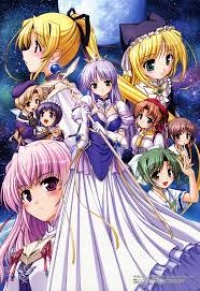
Yoake Mae yori Ruriiro na, also known as Crescent Love, is a Japanese adult visual novel developed by August and first released on September 22, 2005 for Windows. It was later ported to the PlayStation 2 and PlayStation Portable.
The Dresden Dolls

The Dresden Dolls are an American musical duo from Boston, Massachusetts. Formed in 2000, the group consists of Amanda Palmer (vocals, piano, harmonica, ukelele) and Brian Viglione (drums, percussion, guitar, bass guitar, vocals). The two describe their style as "Brechtian punk cabaret", a phrase invented by Palmer because she was "terrified" that the press would invent a name that "would involve the word gothic." The Dresden Dolls are part of an underground dark cabaret movement that started gaining momentum in the early 1990s.
Dave Grusin
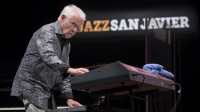
Robert David Grusin is an American composer, arranger, producer, and pianist. He has composed many scores for feature films and television, and has won numerous awards for his soundtrack and record work, including an Academy Award and ten Grammy Awards.
Cat Stevens
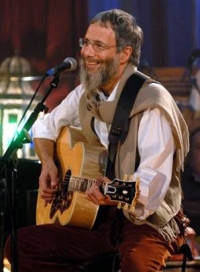
Yusuf Islam, (born Steven Demetre Georgiou on 21 July 1948), best known by his former stage name Cat Stevens, is a British musician of Greek Cypriot and Swedish ancestry. He is a singer-songwriter, multi-instrumentalist, educator, philanthropist and prominent convert to Islam.
As Cat Stevens, he sold over 60 million albums around the world since the late 1960s. His albums Tea for the Tillerman and Teaser and the Firecat were both certified as Triple Platinum by the RIAA in the United States (three million sales each); his album Catch Bull at Four sold half a million copies in the first two weeks of release alone, and was Billboard's number-one LP for three consecutive weeks. His songwriting has also earned him two ASCAP songwriting awards for "The First Cut Is the Deepest," which has been a hit single for five different artists, and has been instrumental for others in establishing their musical careers.
Stevens converted to Islam at the height of his fame in 1977. The following year, he adopted his Muslim name Yusuf Islam, sold all his instruments and awards for charity, and left his music career to devote himself to educational and philanthropic causes in the Muslim community. He turned to his mother to help him decide the best candidate to wed, and thus, in an arranged marriage, took his vows with Fauzia Mubarak Ali, eventually producing five living children from the union.
He has been given several awards for his work in promoting peace in the world, including 2003's World Award, the 2004 Man for Peace award, and the 2007 Mediterranean Prize for Peace. In 2006, he returned to pop music, with his first album of new pop songs in 28 years, entitled An Other Cup.
He lives with his wife, children and grand-child in London. Yusuf Islam spends part of each year in Dubai.
As Cat Stevens, he sold over 60 million albums around the world since the late 1960s. His albums Tea for the Tillerman and Teaser and the Firecat were both certified as Triple Platinum by the RIAA in the United States (three million sales each); his album Catch Bull at Four sold half a million copies in the first two weeks of release alone, and was Billboard's number-one LP for three consecutive weeks. His songwriting has also earned him two ASCAP songwriting awards for "The First Cut Is the Deepest," which has been a hit single for five different artists, and has been instrumental for others in establishing their musical careers.
Stevens converted to Islam at the height of his fame in 1977. The following year, he adopted his Muslim name Yusuf Islam, sold all his instruments and awards for charity, and left his music career to devote himself to educational and philanthropic causes in the Muslim community. He turned to his mother to help him decide the best candidate to wed, and thus, in an arranged marriage, took his vows with Fauzia Mubarak Ali, eventually producing five living children from the union.
He has been given several awards for his work in promoting peace in the world, including 2003's World Award, the 2004 Man for Peace award, and the 2007 Mediterranean Prize for Peace. In 2006, he returned to pop music, with his first album of new pop songs in 28 years, entitled An Other Cup.
He lives with his wife, children and grand-child in London. Yusuf Islam spends part of each year in Dubai.
 Sheet Music Max is a site for those who wants to access popular sheet music easily,
letting them download the sheet music for free for trial purposes.
It's completely free to download and try the listed sheet music, but you have to delete the files after 24 hours of trial.
Don't forget, if you like the piece of music you have just learned playing,
treat the artist with respect, and go buy the original sheet music.
Sheet Music Max is a site for those who wants to access popular sheet music easily,
letting them download the sheet music for free for trial purposes.
It's completely free to download and try the listed sheet music, but you have to delete the files after 24 hours of trial.
Don't forget, if you like the piece of music you have just learned playing,
treat the artist with respect, and go buy the original sheet music.
